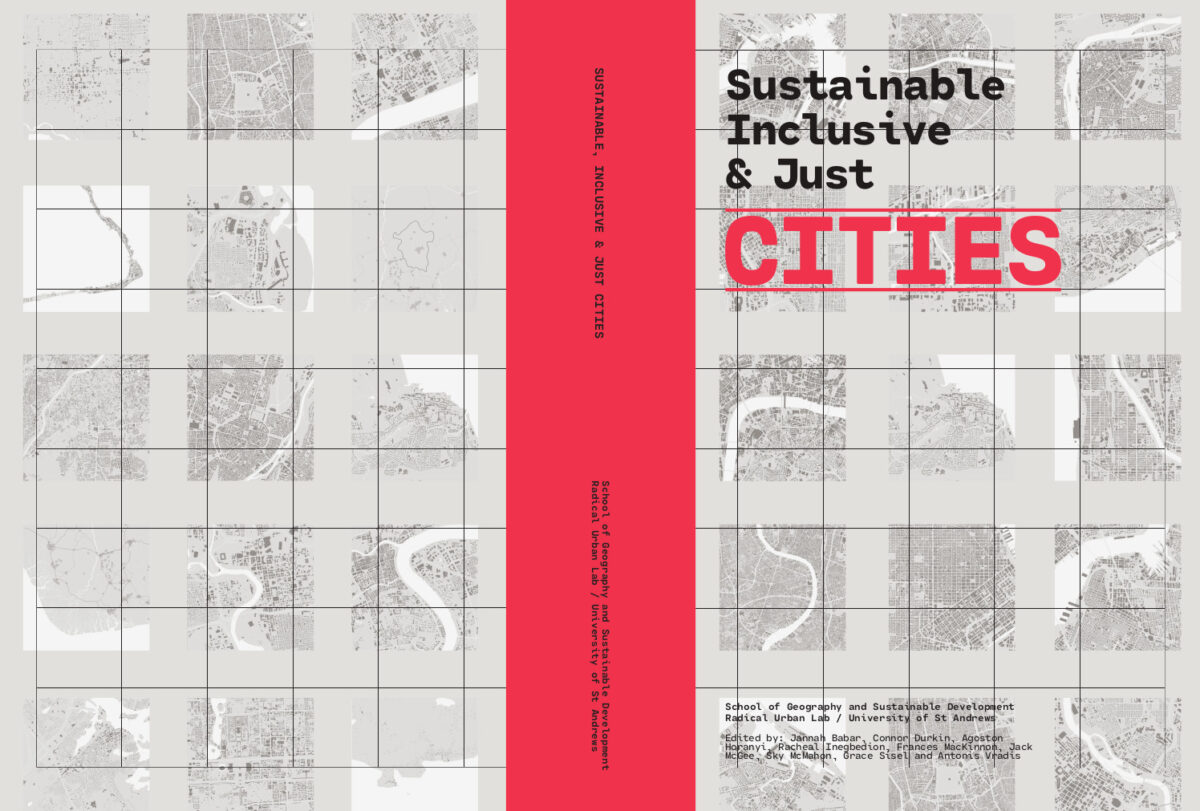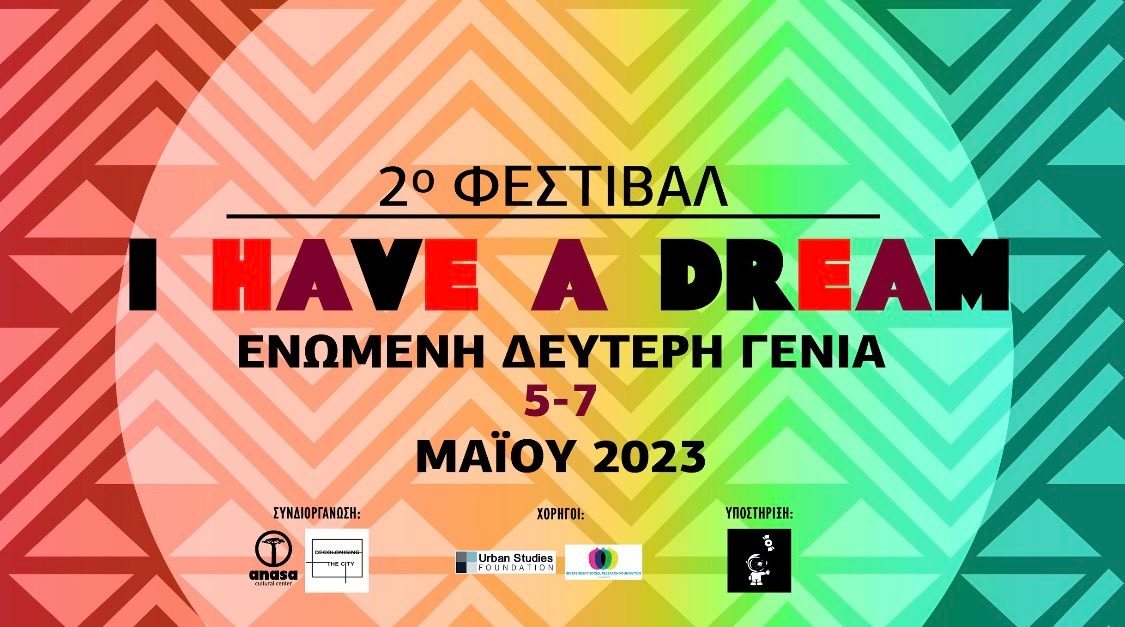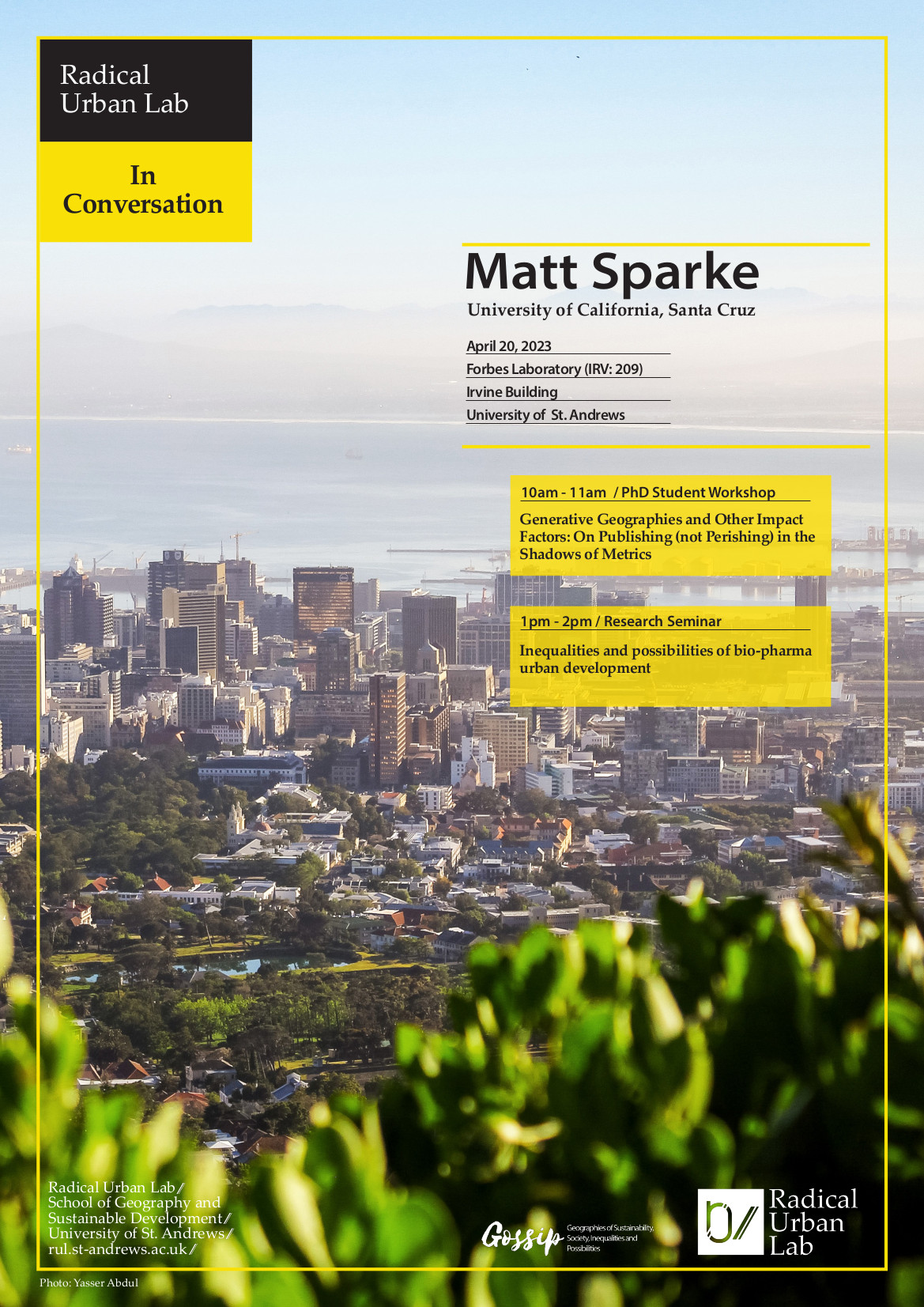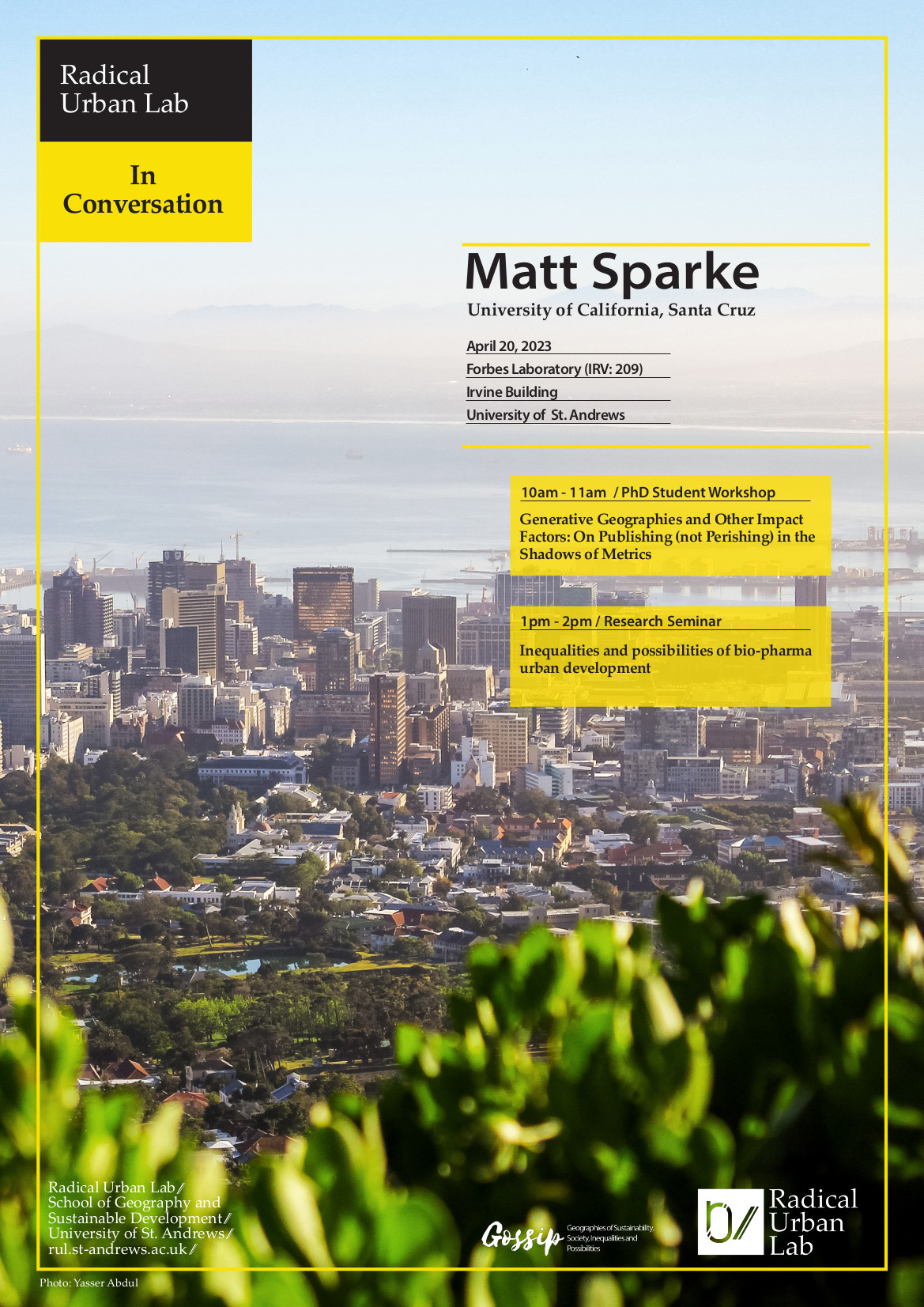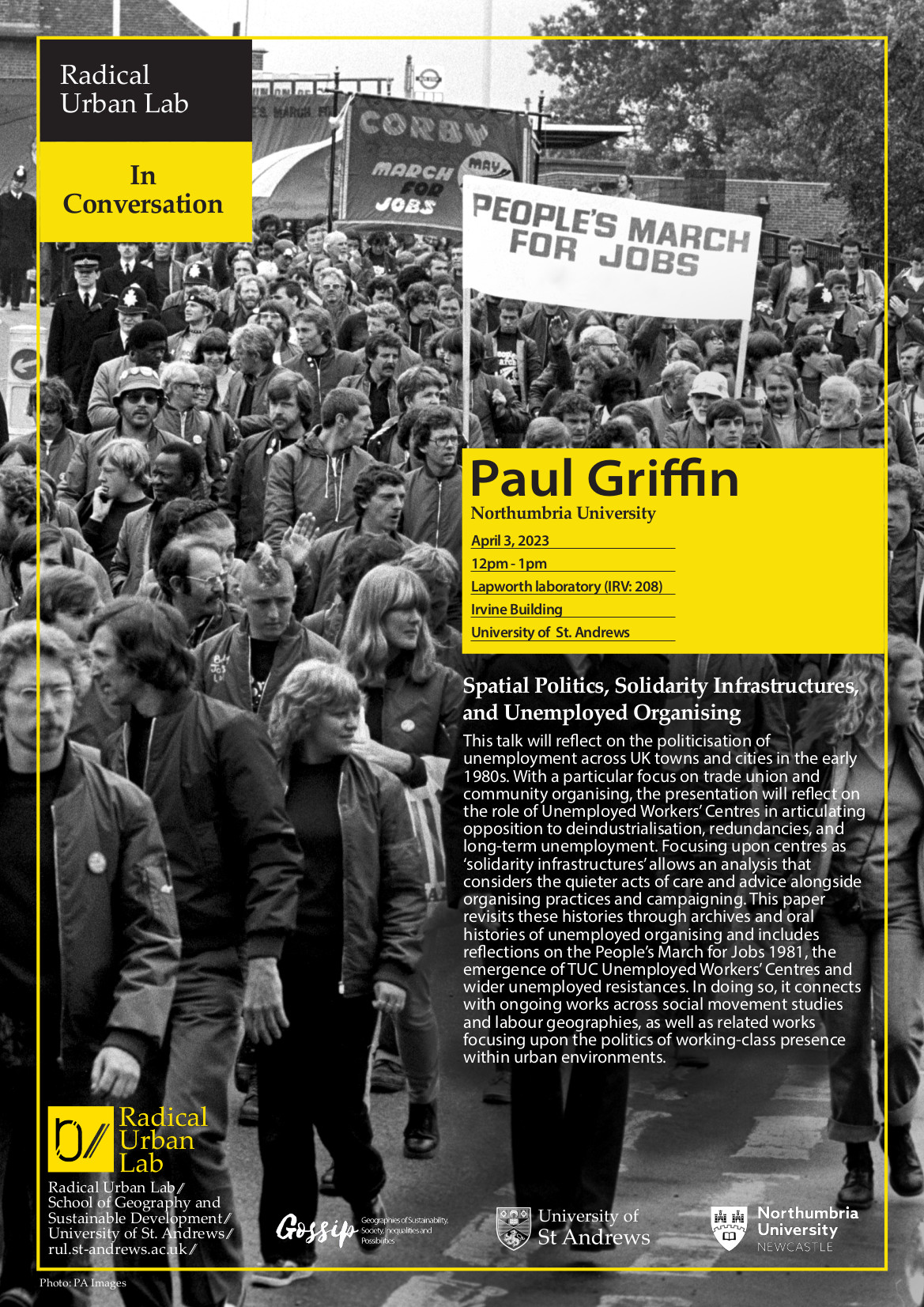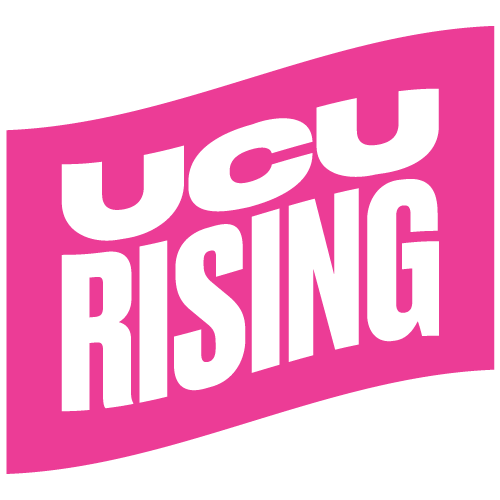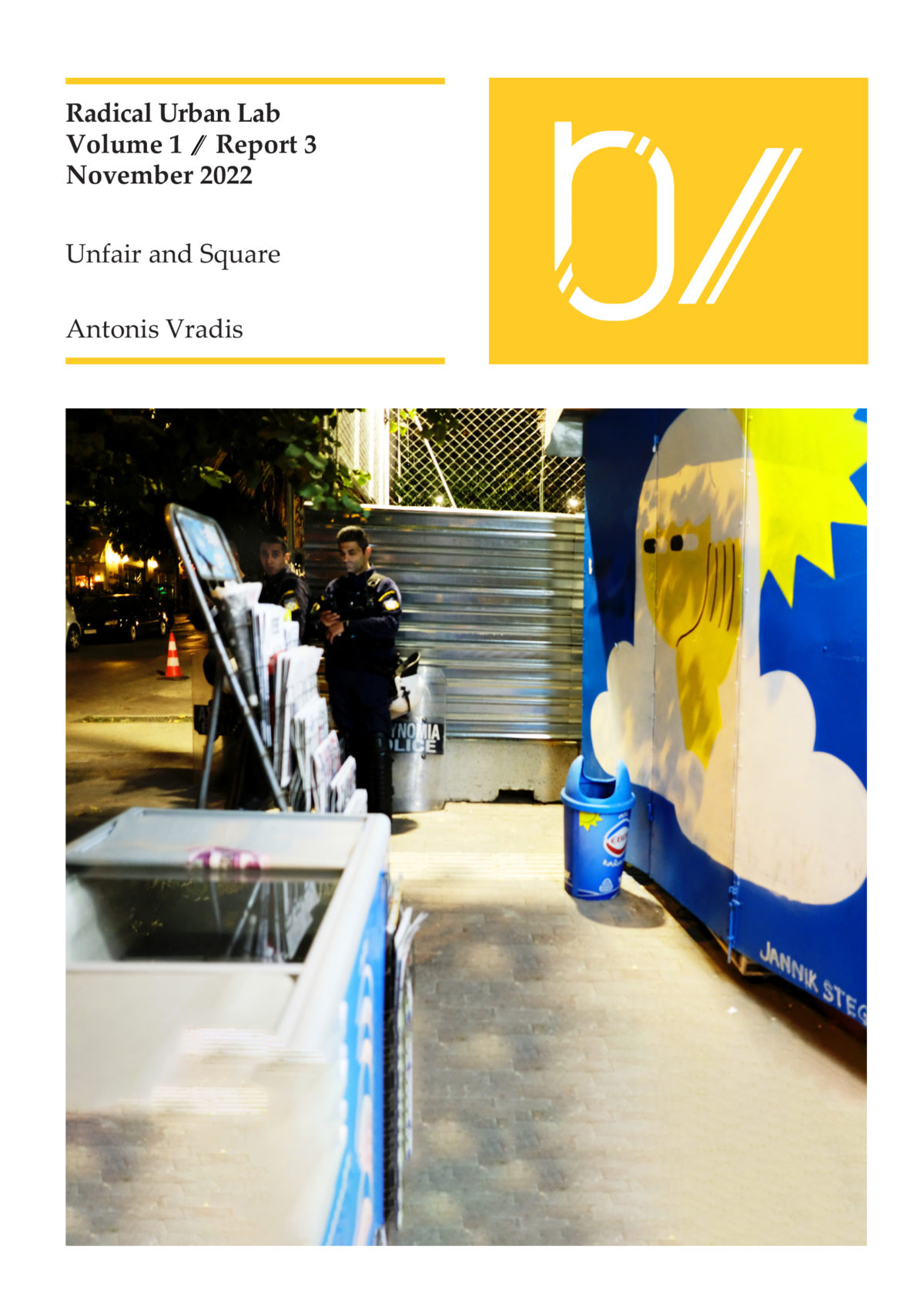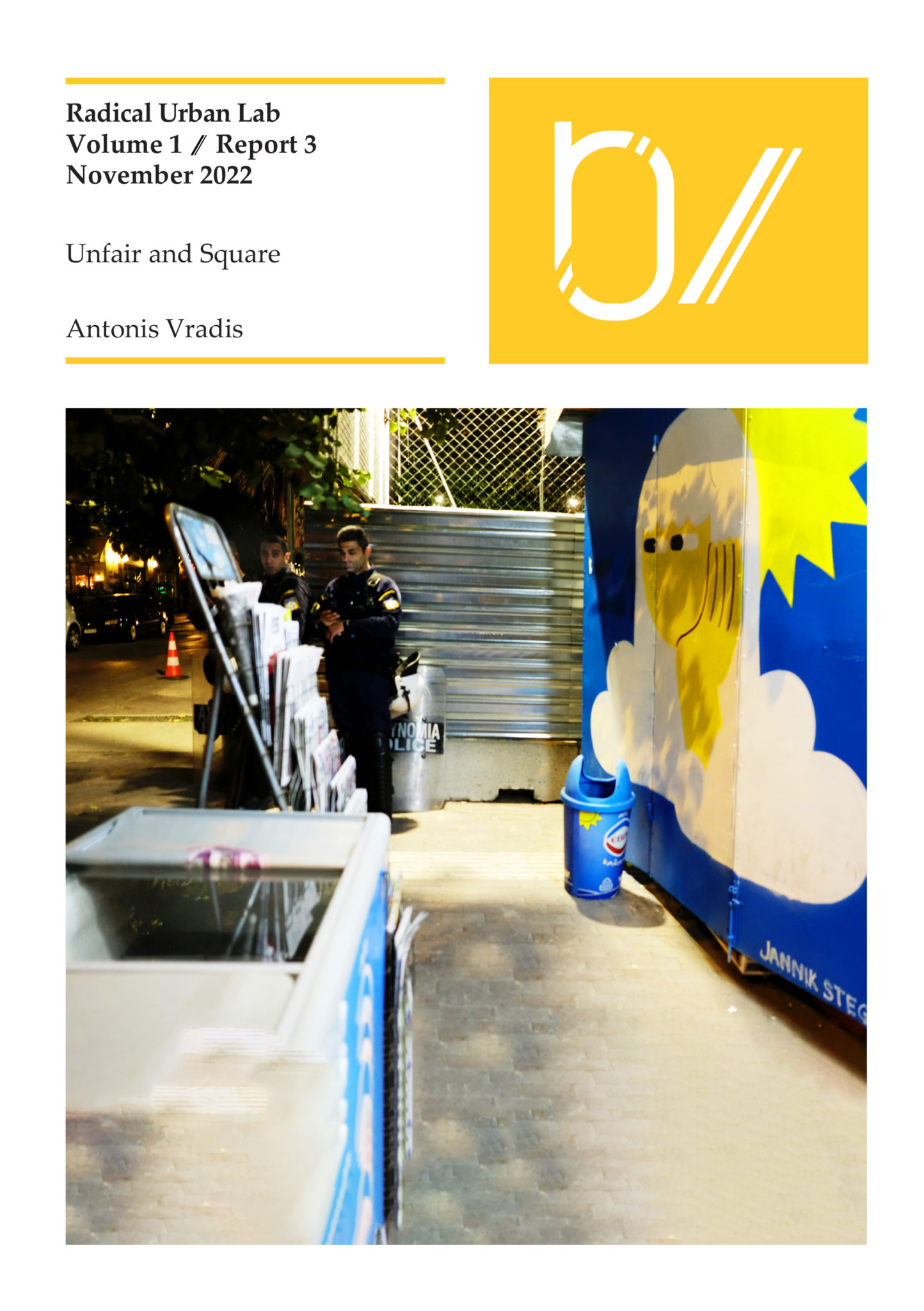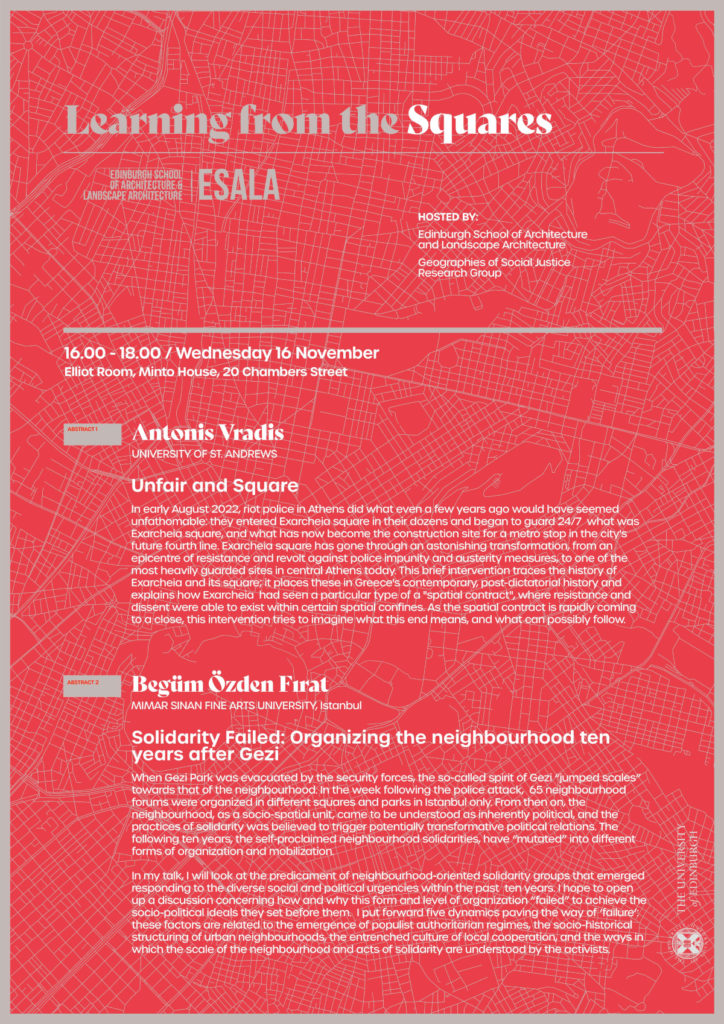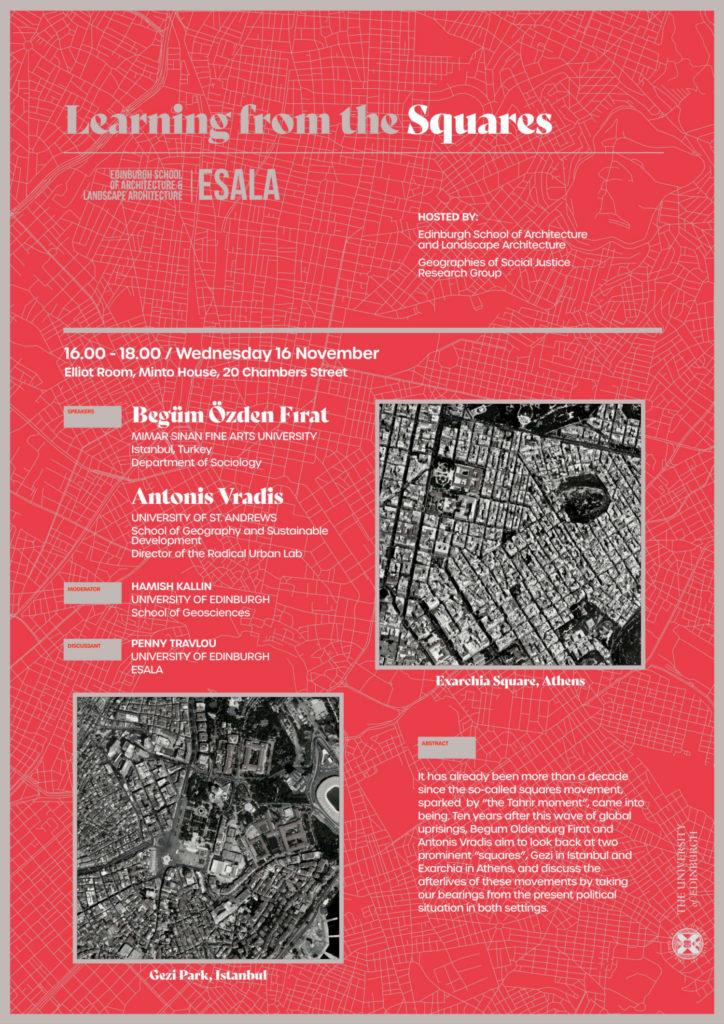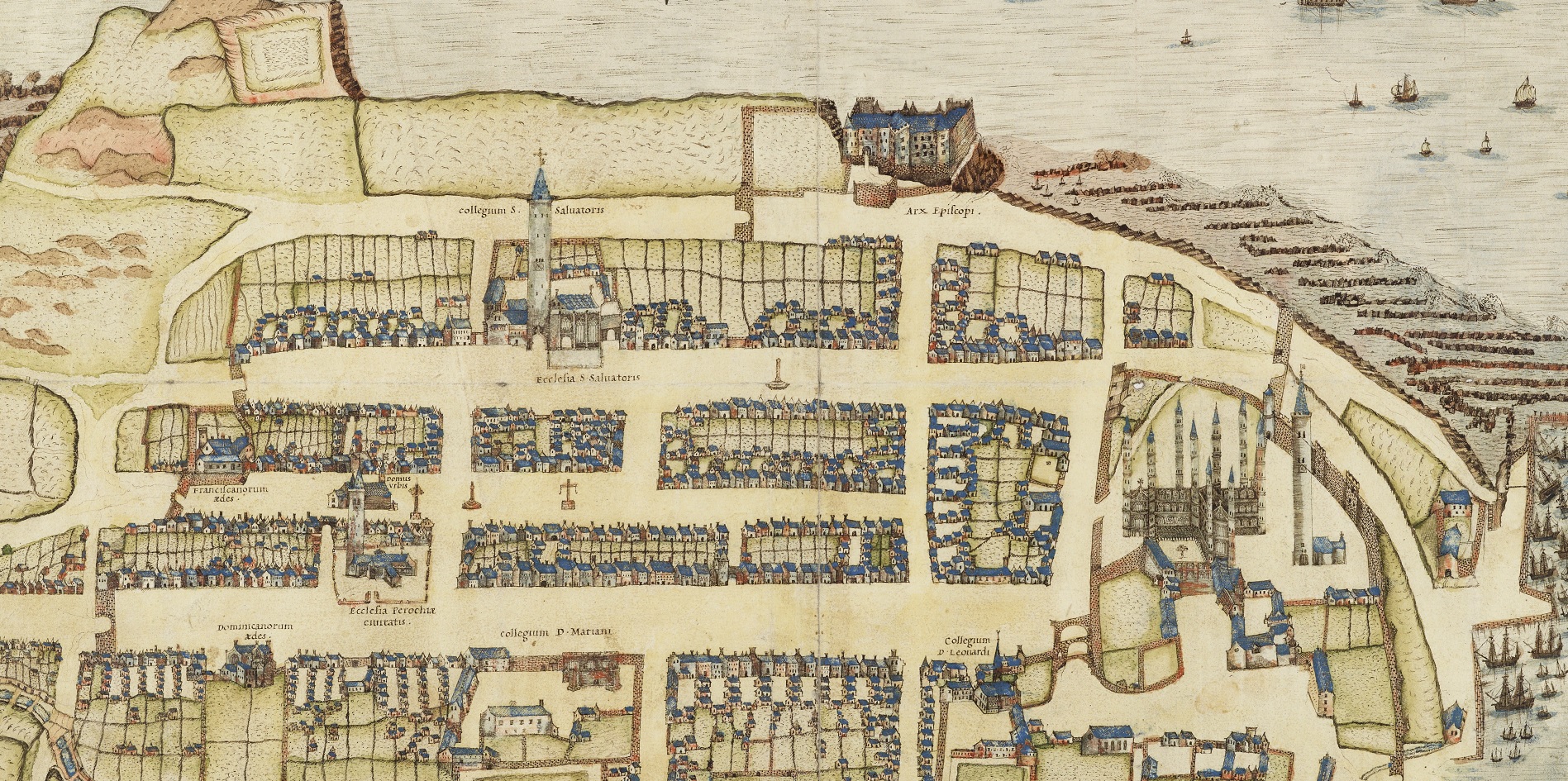
While various sustainable landscape approaches are in motion — from edible gardens to wildflower meadows — biodiversity conflict (e.g., different expectations of landscape) remains a key obstacle to imagining and realising these alternatives. This conflict is evident around us, from so-called pigeon spikes to the debate around manicured vs. messy gardens. There is a fundamental need for reconciliation and a transformation of the human-nature relationship.
The University recently awarded School of Geography and Sustainable Development PhD student and RUL member Benjamin Ong a Scotland’s Future Series grant for a project titled ‘Where Earth Ends: Rediscovering and reimagining Scotland’s urban green spaces’.
This project aims to spark alternative, ecologically regenerative imaginations of future (urban) green space by exploring the deep(er) past and drawing on place-based approaches, alongside perspectives from history, literature, culture and heritage.
It ponders questions like:
- How can attentiveness to nature be more strongly interwoven with(in) the urban fabric?
- How can history and culture be brought to bear upon contemporary landscape practices?
- What does it mean to be place-based in Scotland’s increasingly cosmopolitan urban spaces?
- What might (urban) green space look like if informed by “multi-” — e.g., multifaith, multispecies, multisensory? How can we better honour our relationships with each other and with the “other”?
This project is expected to stimulate and facilitate interdisciplinary conversation and creation across geography, literature/language, history and theology, to name a few. It will involve “town and gown” collaboration with artists and community groups in St Andrews and beyond, culminating in an exhibition and/or installation (broadly speaking, and open to redefinition/reinterpretation), tentatively scheduled for Spring 2024.
This project takes inspiration from Ben’s past creative/participatory work (see The Kampung City / ImagiNasi), the philosophy of Patrick Geddes, concepts like ecosophy, and recent efforts to “time travel” and bring the past to life (such as the National Trust for Scotland’s Glencoe Turf House).
For more information, or to explore partnership opportunities (including loaning us a TARDIS), write to [email protected].
About the Scotland’s Future Series
The Scotland’s Future Series demonstrates the University of St Andrews’ commitment to playing an active role in developing Scotland’s future by enabling our staff and students to contribute to and facilitate wider discussions, helping to shape informed, respectful and productive discussion and debate. It will also enable the University to take a position of ideas leadership on how to meet the challenges of the future.
Relevant Posts
Where Earth Ends: Rediscovering and reimagining Scotland’s urban green spaces (Benjamin Ong)
While various sustainable landscape approaches are in motion — from edible gardens to wildflower meadows — biodiversity conflict (e.g., different expectations of landscape) remains a

